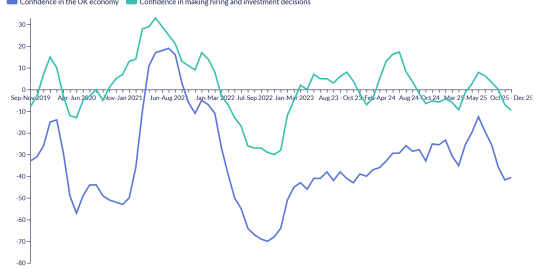Covid-19 catastrophically impacted a number of industries and drove a sledgehammer into the job market. However, some sectors were posting a far greater percentage of jobs and receiving hugely increased numbers of applications at the end of 2020 compared to the beginning during the pre-pandemic months. WaveTrackR data, revealed in its Recruitment Trends: Lockdown report released this week, has shown that the Education sector experienced the largest amount of positive growth across all industries in both jobs and applications. As a sector that has historically struggled to meet its recruitment targets (targets for secondary teacher recruitment were missed for the seventh year in a row in 2019, sparking fears of teacher shortages across England) this is hugely positive. How has it happened and what lies in Education recruitment’s post-pandemic future?
With a 97% growth in jobs and a 99% growth in applications from the first three months of 2020 to the last three, Education saw a huge amount of job activity across a year that decimated other industries. Applications started to rise from May onward, coinciding with the period over which the financial affects of the pandemic truly began to be felt. Redundancies started to soar in May and kept coming. In the three months to September, the number of redundancies had already surpassed the damage done during the previous financial crisis both in speed and severity. Fears that the job market was stalling and tales of a hugely expanded talent pool and mounting competition for every job prompted a surge of people signing up to teacher training programmes. Seen as a steady and safe career choice, teaching became the go-to for many who found themselves out of work and contemplating a career change.
The pandemic has led to huge swathes of the population rethinking life choices, from where and how they live (data in the WaveTrackR report has shown that Property, too, experienced a boom in 2020) to career paths. Many want to do something that makes a difference and a career in Education offers that. Applications soared in September as schools re-opened and peaked in October in response to an increase in jobs. They had slightly dropped by December but remained well above the pre-pandemic months of January-March.
So what caused the increase in job postings over the course of the year? They started to really ramp up from September, coinciding with the new school year and the re-opening of schools across the UK. As the rules surrounding schools being permitted to re-open to all children included the isolation of anyone who has any Covid symptoms, along with their families, huge numbers of staff were forced to isolate in the autumn term. The issue, certainly in the first few weeks of the new term, was that it was difficult to obtain a test, the negative result of which would have allowed school staff to return to school. Reports came thick and fast of teachers having to wait days to obtain a test slot and then waiting days more for a result. Supply staff were therefore needed at an increased rate across the whole of the UK and recruiters that supplied such cover were highly in demand.
For NQTs who trained during the 2019/2020 year, the outlook has not been so rosy. Whereas usually they are placed into employment quickly, there were many in 2020 that were still not employed in December. This has largely been due to a considerable decrease in turnover - the majority of teachers understandably don’t want to leave stable jobs also retention has been far higher than usual. A UK-wide survey conducted by the National Foundation for Educational Research after the May half term found that 15% fewer teachers were considering leaving Education than the same time the previous year.
Will this solve the recruitment and retention problem that Education has faced for years? The answer is likely to be no. Those who were previously considering a move out of Education may simply be waiting for the job market to improve and those who rushed to apply for teacher training positions during the first lockdown may rethink hastily made career decisions once the dust has settled. This may be exasperated by the additional pressures placed on teaching staff by the measures imposed to increase safety in schools during the pandemic. There is also the worry that NQTs who are struggling to find a job may simply give up and start to look elsewhere. At the same time, the Department for Education has cut grants for teacher training in shortage subjects in response to the hugely increased number of teacher application during the pandemic, a move that experts have called “short-sighted”.
At WaveTrackR, we are used to seeing peaks and troughs in both jobs and applications across the year, although obviously the pandemic has altered trends and caused unprecedented spikes. Are the soaring levels of applications in Education a knee-jerk reaction to a temporarily vulnerable job market or are we witnessing the beginning of the end of a teacher recruitment crisis? Only time will tell but if the experts are right, we may see some very different stats in Education over the next year.






